#twin-turbocharged
Explore tagged Tumblr posts
Text
Koenigsegg Jesko – $3M
Koenigsegg has made its way on this list more than once, but the first one up is the Koenigsegg, coming in at a cool $3 million. The Jesko is one of the fastest cars that the company has made too.
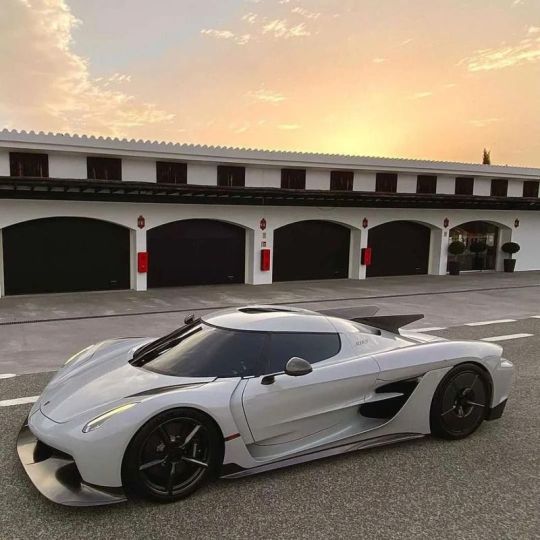
It features a twin-turbocharged 5-liter V8 engine, giving it 1,600 horsepower. With this much power behind it, this car can reach an astonishing 300 miles per hour in the Absolut model of the car which has a pretty sleek look as well.
#twin-turbocharged 5-liter V8 engine#V8 engine#twin-turbocharged#twin-turbocharged V8 engine#car#cars#Koenigsegg Jesko#Koenigsegg#jesko
39 notes
·
View notes
Text

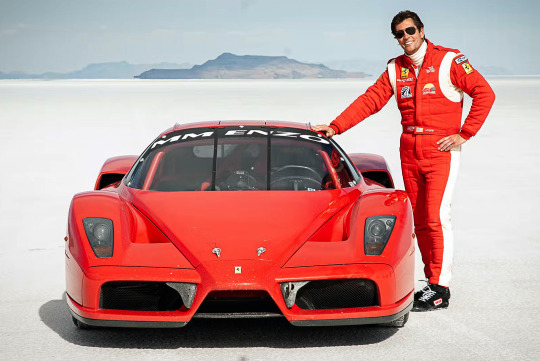
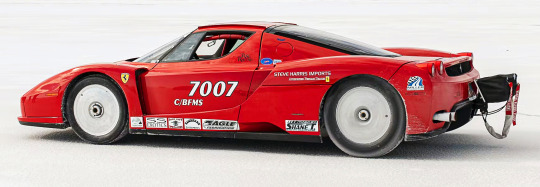
RSL Racing Ferrari Enzo, 2010. A twin-turbocharged modified Enzo that set a new Southern California Timing Association World Land Speed record of 237.871 miles per hour at the Bonneville Salt Flats on October 10, 2010. The car piloted by Richard Losee
#Ferrari#Ferrari Enzo#RSL Racing#record car#land speed record#2010#twin turbocharged#Bonneville Salt Flats#mid-engine#V12#custom car#modifiied car#Richard Losee
192 notes
·
View notes
Text
Check out my store!!!!
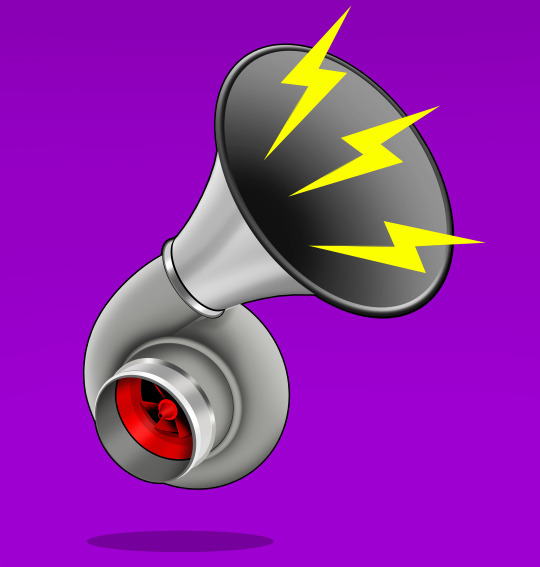
0 notes
Link
TAEVision 3D Design Applications Automotive BMW LIGHT-SHOWROOM BMW M3 Series Sedan ... BMW Bayerische Motoren Werke 3.0 liter M TwinPower twin-turbocharged Turbo inline 6-cylinder engine 425 horsepower. Rear-wheel drive. Sakhir Orange Metallic. 19" M Double-spoke forged black wheels ▸ TAEVision Engineering on Pinterest ▸ TAEVision Engineering on Google Photos

Data 492 - Apr 10, 2023
#TAEVision#engineering#3d#mechanicaldesign#automotive#BMW#BMW Bayerische Motoren Werke#BMW LIGHT-SHOWROOM#BMW M3#BMW M3 Series#BMW M3 Series Sedan#TwinPower#twin turbocharged#Sakhir Orange
1 note
·
View note
Photo

Customer: GREDDY TWIN TURBO NSX, PLATE IS FOR A TURBOCHARGED NSX DMV: GETTING SEX Verdict: DENIED
#California license plate with text GETTNSX#bot#ca-dmv-bot#california#dmv#funny#government#lol#public records
159 notes
·
View notes
Text
Flip-up headlights are basically the only thing that can reliably bring me joy in a car. 8500-rpm redline? Heated leather seats? Mid-engined twin-turbocharged V8? Yeah, those are nice and all – but have you seen how this thing looks like a weird frog when I push this button?
The thing about cars is that they were never meant to be taken seriously. Sure, they were originally developed for rich people to use to run over poor people with. Then they became race cars, and racers are very serious about everything except for the survival of the car (and sometimes themselves.) After that, though, they became proletarian transport. With that accessibility came genuine fun. You can’t do a four-alarm burnout with a horse, and if you tried, you’d probably end up going to jail because of the horse police.
So, anything that can increase the amount of fun you’re having with a car is great, especially if you don’t have to burn fuel, brake pads, and oil to do it. And flip-up headlights qualify. They’re fun even when the car is turned off. They make the car look either super-sleek, aerodynamic, futuristic, or... goofy. The designers picked up on this duality, and they often add wacky transitions to draw attention to the party piece.
Sure, they’re not that great for pedestrians, so don’t hit any. Their utility in the unimportant field of “being able to see” are in question. Big deal. That’s why they have 80s-style rally lightbars, which also look a little bit goofy, and tell everyone around you (especially the cops) that you are not a serious race car driver. Those folks would never put such an aerodynamic limiter on their exotic lap-killing machine.
544 notes
·
View notes
Text
Even BMW—a company that literally has "motor" for a middle name—only deigns to reveal on its i3 product page that the motor is “AC synchronous.” Meanwhile, the engine in the base-model 3 Series a few clicks over is described as a “2.0-liter BMW TwinPower Turbo inline 4-cylinder, 16-valve 180-hp engine that combines a twin-scroll turbocharger with variable valve control (Double-VANOS and Valvetronic) and high-precision direct injection.” That's before the site goes on to describe the engine’s electronic throttle control, auto start-stop function, direct ignition system with knock control, electronically controlled engine cooling (map cooling), brake energy regeneration, and driving dynamics control with Eco Pro, Comfort, and Sport settings.
But then, it's hard to blame people for not giving a damn. Most consumers—hell, even car geeks—don’t possess the knowledge or vocabulary to authoritatively converse about electric motors, and on the surface, there would seem to be precious little indication that there’s even anything meaningful to discuss about them. It’s a lot harder to get excited about, say, the difference between permanent magnets and AC induction than it is between V8s and twin-turbo sixes. The fact that carmakers and the media don’t billboard motor innovation naturally leads the public to assume that there’s nothing much going on there.
interesting the way marketing focuses on the battery, which obviously has been the major development in the tech overall
33 notes
·
View notes
Text
Twin charge setups have always been interesting for me. It utilizes a supercharger paired with a turbocharger in an attempt to get the best of both worlds. In the early to mid 2000s, a few top tuners like Bee*R & Top Secret made demo cars to showcase their work. Most people have heard about the S15, but few have seen the Z33. I wonder how the VQ must have felt?
📚: Option x D-Car 2006





38 notes
·
View notes
Text

AMG GT Black Series „The Endgame“.
Back in the days, the most powerful AMG V8 series engine of all time, the most expressive design, the most elaborate aerodynamics, the most intelligent material mix, the most distinctive driving dynamics: For the new Mercedes-AMG GT Black Series (combined fuel consumption 12.8 l/100 km, combined CO2 emissions 292 g/km)[1], the Affalterbach designers have pulled out all the stops when it comes to the art of vehicle design.
The super sports car perfectly embodies the brand’s rich tradition in motorsport, as well its many years of expertise in developing complete vehicles which impress in every respect. The result is an output of 537 kW (730 hp) from a V8 engine with a ‚flat‘ crankshaft, combined with active aerodynamics and a design which stems directly from the current AMG GT3 racing car.
Different designs of V8 engines.
The design of a V8 engine gives designers plenty of room to play with in one key element: the crank arrangement on the crankshaft.
The result is the most powerful V8 series engine from Mercedes-AMG.
The GT Black Series engine may be based on the AMG 4.0-litre V8 biturbo engine with dry sump lubrication, but it has been given the new internal code M178 LS2 due to the numerous modifications. It achieves 730hp at 6700-6900 rpm and delivers a maximum torque of 800Nm at 2000-6000 rpm. New camshafts and exhaust manifolds are adapted to the new firing order and further improve the gas cycle.
Both twin scroll exhaust turbochargers are mounted in anti-friction bearings, as in the top-of-the-range four-door AMG GT Coupé, which optimises their throttle response even further. However, in the Black Series, the turbochargers have been given a larger compressor wheel, meaning that both can deliver a total of 1100 kg air per hour.
Mercedes-AMG One man, one engine Handcrafted by Michael Kübler @f1mike28 in Germany Affalterbach.
Driving Performance is my Passion! Mercedes-AMG the Performance and Sports Car Brand from Mercedes-Benz and Exclusive Partner for Pagani Automobili. Mercedes-AMG Handcrafted by Racers.
#amg#amggt#amggtblackseries#gtblackseries#blackseries#mercedesamg#mercedes#mercedesbenz#affalterbach#onemanoneengine#pagani
23 notes
·
View notes
Text

twin turbocharged McLaren
22 notes
·
View notes
Photo



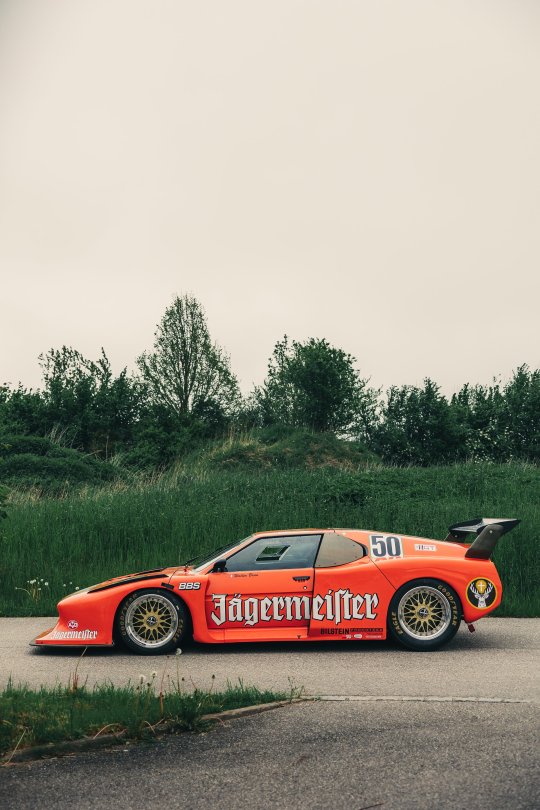



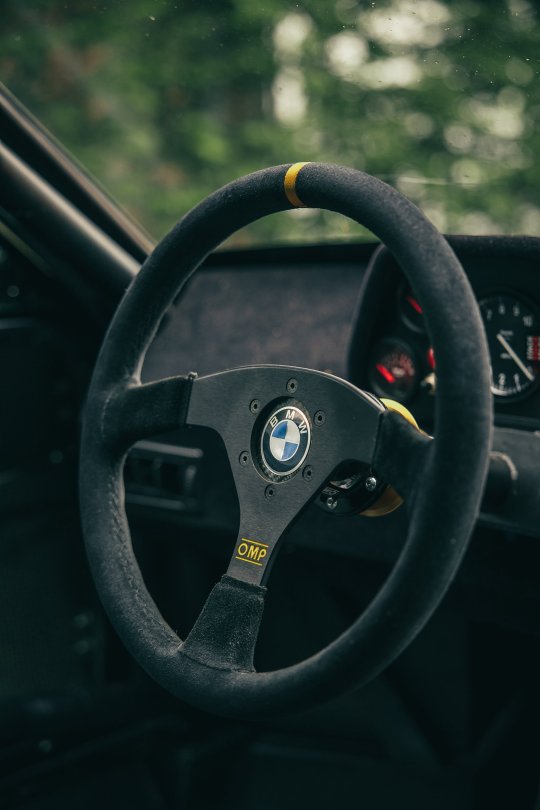


BMW M1 Turbo (the extraordinary case of the BMW M1 with 1000 hp)
Ignore the livery. Or don’t ignore it. Like with every other Jägermeister racing car, it might be hard to actually walk past this orange beast without giving the standout paint job at least one glance. It was designed to attract attention, just how Günter Mast — the man that gave his OK to race cars with the famous stag on the bonnet — intended. The truth of the matter is, however, that this particular car’s convoluted history is as complicated as the story of the BMW M1 itself. Therefore this car is not what it seems to be, as the orange Jägermeister livery stems from the imagination of the man that rebuilt the car, the legendary M1 whisperer Fritz Wagner. And if you ask anyone at Jägermeister headquarters about the car, they will potentially reply with a polite letter from their legal department. To paraphrase Samuel Beckett: there’s nothing funnier than tragedy. And so, the story of the BMW M1 could be perceived as one of the automotive world’s funniest. The car was originally designed with the ambition to create the greatest, mid-engined racing car of all time. One that would beat Porsche’s dominating 935 in the all-important Group 5. A masterpiece made of speed and German reliability which, in reality, became a car that had to be reverse engineered to be sold for the road. All because of changes in racing rules and homologation, which stipulated how many cars had to be produced before a particular model was allowed to hit the track. The production number of 400 cars — which seems so minuscule by today’s standards — turned out to be the first problem on a long list of unfolding disasters.
In essence, the life of this beautiful, light, well-made machine that had been designed by Giorgetto Giugiaro, who reworked Paul Bracq’s original prototype, was plagued by bad luck and bad decisions. The fact that Lamborghini — who were supposed to produce it at their factory — went bust because of copyright fraud and embezzlement of funds didn’t help. However, it was the rushed solution to disperse production all over Europe that was the final nail in the coffin. Marchese built the car's tube frame, TIR molded the fiberglass, Italdesign mated the two and installed the interior, then the M1 was shipped from Italy to Stuttgart, where Baur would install the BMW hardware, after which in Munich BMW Motorsports would do the final touches and quality control. It made the M1 almost a quarter more expensive than any equivalent Ferrari or Lambo sold at the time. Case closed.
British generals in the second world war would often joke that Germans were not very good when it came to Plan B. This might be true. In the end, even if BMW’s head of Motorsport Jochen Neerpasch, the brilliant man that he is, thought of a way to market the M1 with the Procar series, in which F1 drivers like Niki Lauda, Clay Regazzoni, and Nelson Piquet would race the cars against privateers, as a prelude to the weekend's Formula 1 race, too few examples were made for the car to ever officially leave Group 4 as was originally intended. Later on, those teams who managed to finally race in Group 5, years after BMW abandoned the programme in order to enter to F1, found the M1 simply uncompetitive. Even the twin-turbocharged models built by Schnitzer, which developed 800 hp and more from their straight six engines, were plagued by problems. his finally brings us to this particular, rather unusual example. It was allegedly built for the famous Walter Brun racing team, who later on won the Group C World Championship with a Jägermeister-liveried Porsche 956. Brun’s friendship with Paul Rosche, the man who turbocharged the BMW 2002, gave rise to the idea of installing the M88 turbo engine originally planned for the March Group-5 car into a modified M1 Procar chassis wrapped into Group 5 bodywork. However, the car was never raced. Why? Even at BMW no one knows. Particularly good news considering that back in the day, when this 1090 kg machine was put on a dyno, it put out 1000 hp and 930 NM of Torque. A reading obtained just before the machine broke while the car apparently still wanted to keep going. Now in the hands of a new owner who intends to race it regularly, it will have plenty of opportunity to shine. And so a new chapter unfolds…
#BMW M1 Turbo#Jägermeister#porsche#Ferrari#lamborghini#Group 4#Niki Lauda#Clay Regazzoni#Nelson Piquet#Group 5#Walter Brun#Porsche 956#BMW 2002
209 notes
·
View notes
Text

Porsche 917 Flat-12 Engine: The heart of Le Mans dominance, featuring twin turbochargers, this engineering marvel propelled the 917/30 to legendary status. With over 1,000 horsepower, it defined the golden age of motorsport innovation.
10 notes
·
View notes
Text





Pagani Huayra Epitome, 2024. Pagani’s Grandi Complicazioni division have made a one-off Huayra with manual transmission, a first for the model. The AMG sourced 5,980cc twin turbocharger V12 provides 864hp driving through a seven-speed transmission from Xtrac.
#Pagani#Pagani Huayra Epitome#Pagani Huayra#hypercar#mid-engine#AMG V12#twin turbo#one-off#bespoke#2024
558 notes
·
View notes
Text
Filmed in its natural habitat. The Ford GT Mk IV is a limited-edition track-only GT built by Multimatic Motorsports and Ford Performance that pays tribute to the original 1967 Ford GT Mk IV and manifests the true racetrack potential of a Ford GT that is not hindered by limitations imposed by series rules, sanctioning bodies, or homologation requirements. The Mk IV is powered by a 800+HP twin turbocharged 3.5-liter V6 Ecoboost engine mated to a six-speed Xtrac racing transmission. It's built around a lightweight carbon fiber monocoque chassis equipped with state-of-the-art aero to generate an eye-watering 2400 lbs of downforce at 150mph and rides on Multimatic Adaptive Spool Valve (ASV) dampers, giant Alcon carbon ceramic brakes, Michelin racing slicks, and specially-designed 18×12.5/18×13.0 Forgeline one piece forged monoblock wheels that were specifically engineered for the Ford GT Mk IV to handle the astronomical cornering loads that are generated from the combination of aero downforce and grippy Michelin slicks!
#forgeline#forgelinewheels#forgedwheels#customwheels#forgedmonoblock#notjustanotherprettywheel#doyourhomework#madeinUSA#Ford#FordGT#MkIV#GTMkIV#FordGTMkIV#carsofinstagram#carenthusiast#fordperformance
11 notes
·
View notes
Link
TAEVision 3D Design Applications Automotive BMW LIGHT-SHOWROOM BMW M3 Series Sedan ... BMW Bayerische Motoren Werke 3.0 liter M TwinPower twin-turbocharged Turbo inline 6-cylinder engine 425 horsepower. Rear-wheel drive. Sakhir Orange Metallic. 19" M Double-spoke forged black wheels ▸ TAEVision Engineering on Pinterest ▸ TAEVision Engineering on Google Photos
Data 492 - Feb 07, 2023
#TAEVision#engineering#3d#mechanicaldesign#automotive#BMW#BMW LIGHT-SHOWROOM#BMW M3#BMW M3 Series#BMW Bayerische Motoren Werke#TwinPower#twin turbocharged
1 note
·
View note
Text






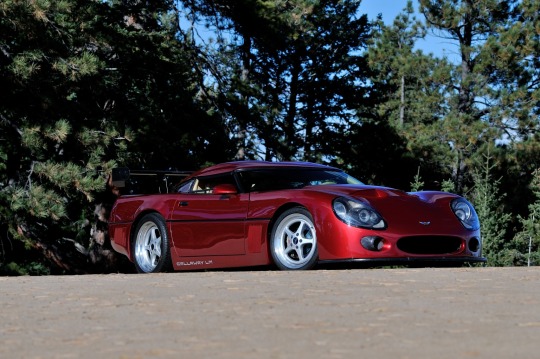
1991 Callaway Super Speedster LM
Offered from the original owner’s collection, this 1991 Chevrolet Corvette Callaway Super Speedster LM is the second of only two so-called Series II Super Speedsters based on the ZR1 model.
The offspring of collaboration between Corvette performance guru Reeves Callaway and designer Paul Deutschman, the Super Speedster LM is an astonishing step up on the original Speedster, taking full advantage of the ZR1’s Lotus-engineered, all-aluminum DOHC engine and 6-speed manual transmission. One of only three twin turbocharged and intercooled LT5 engines built by Callaway, it delivers a pavement-shredding 766 HP, making the car the most powerful of all the twelve Speedsters produced by the company.
More than “just” an incredibly well-engineered engine swap, the Callaway possesses engineering modifications to the suspension and driveline that fully complement its massive power output. The Le Mans body is the only one used on a Speedster. Designed by Paul Deutschman, the Super Speedster LM is a unique combination of his brilliant Callaway Speedster and the dramatic and aerodynamically efficient Le Mans GT2 pole-winning Callaway LM racer. Luxurious appointments abound in the LM’s interior, which features the consummate craftsmanship of Johann Merkhofer.
Lavishly finished in leather and suede with specially embroidered seats, it is fully equipped with comfort and convenience features that include air conditioning and Delco Bose stereo with CD. Unique among Callaway Speedsters is the car’s removable double-bubble hard top, which shares the car’s gorgeous Candy Wine Red paint and evokes the closed-cockpit C7R racers.
8 notes
·
View notes